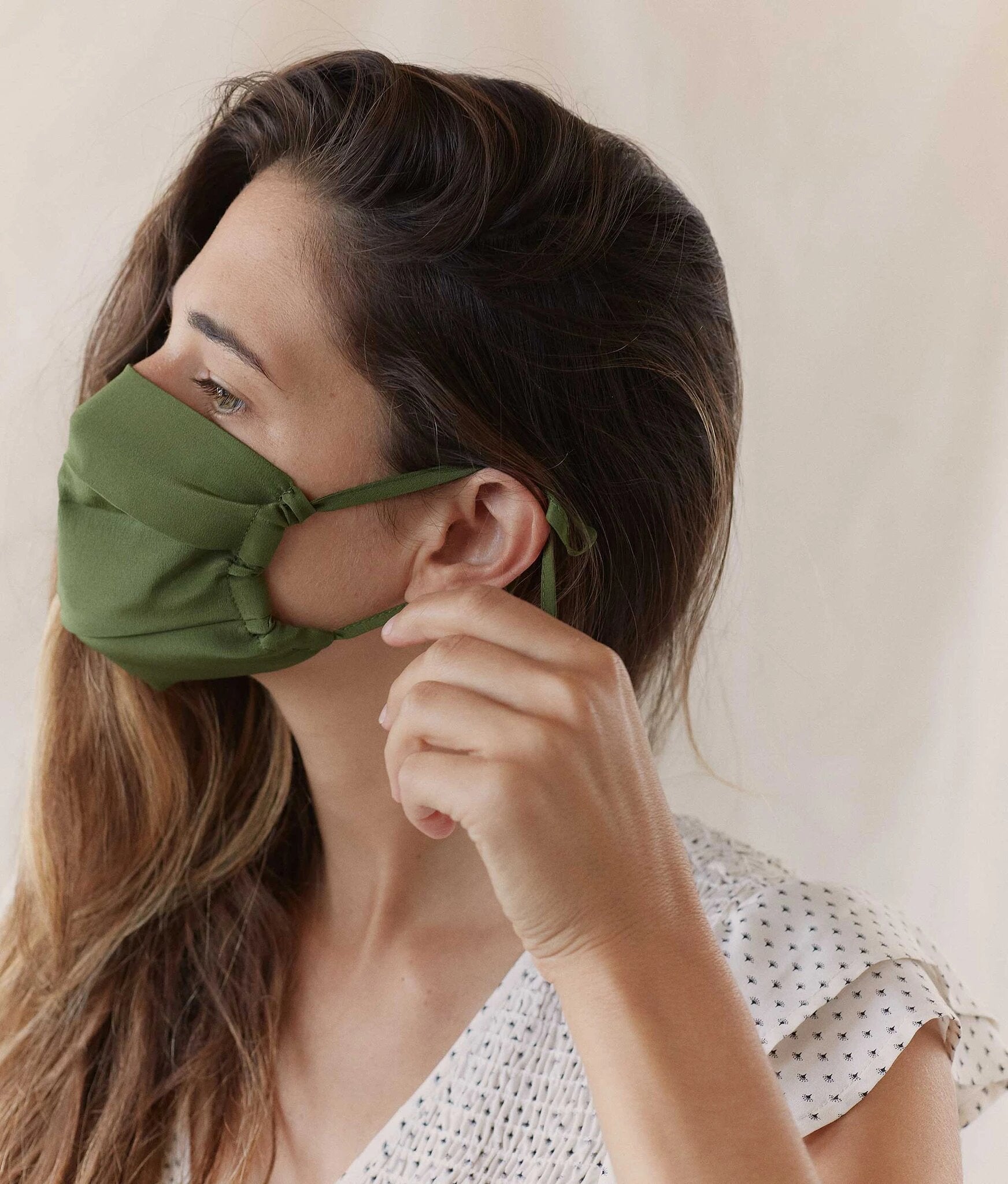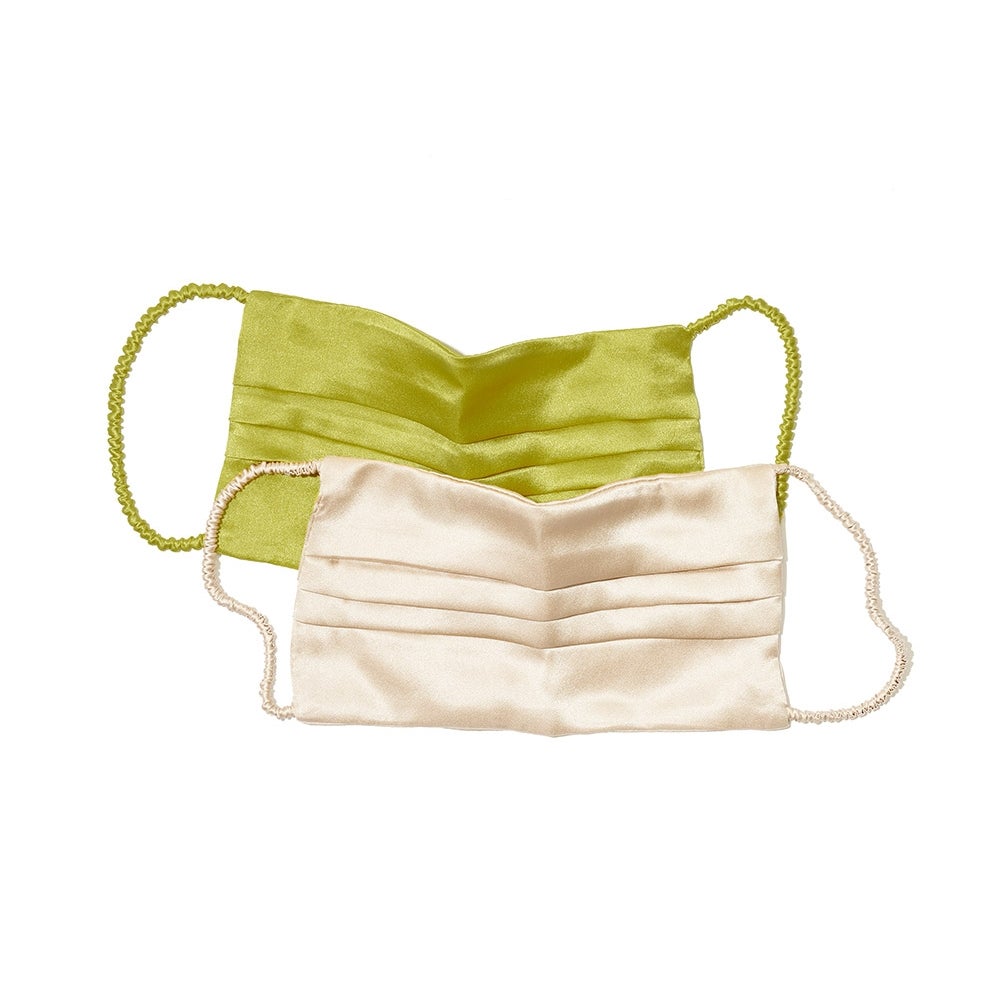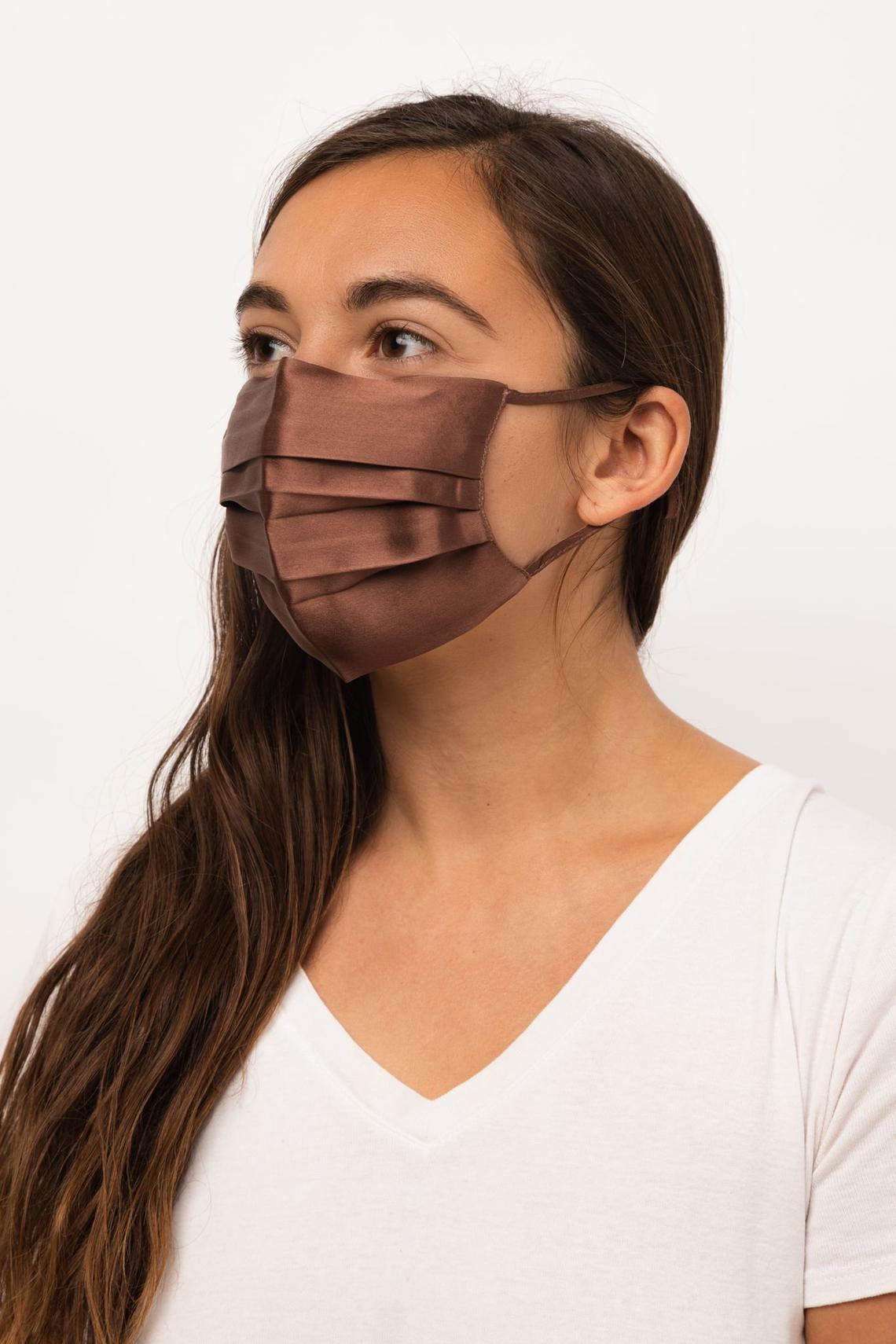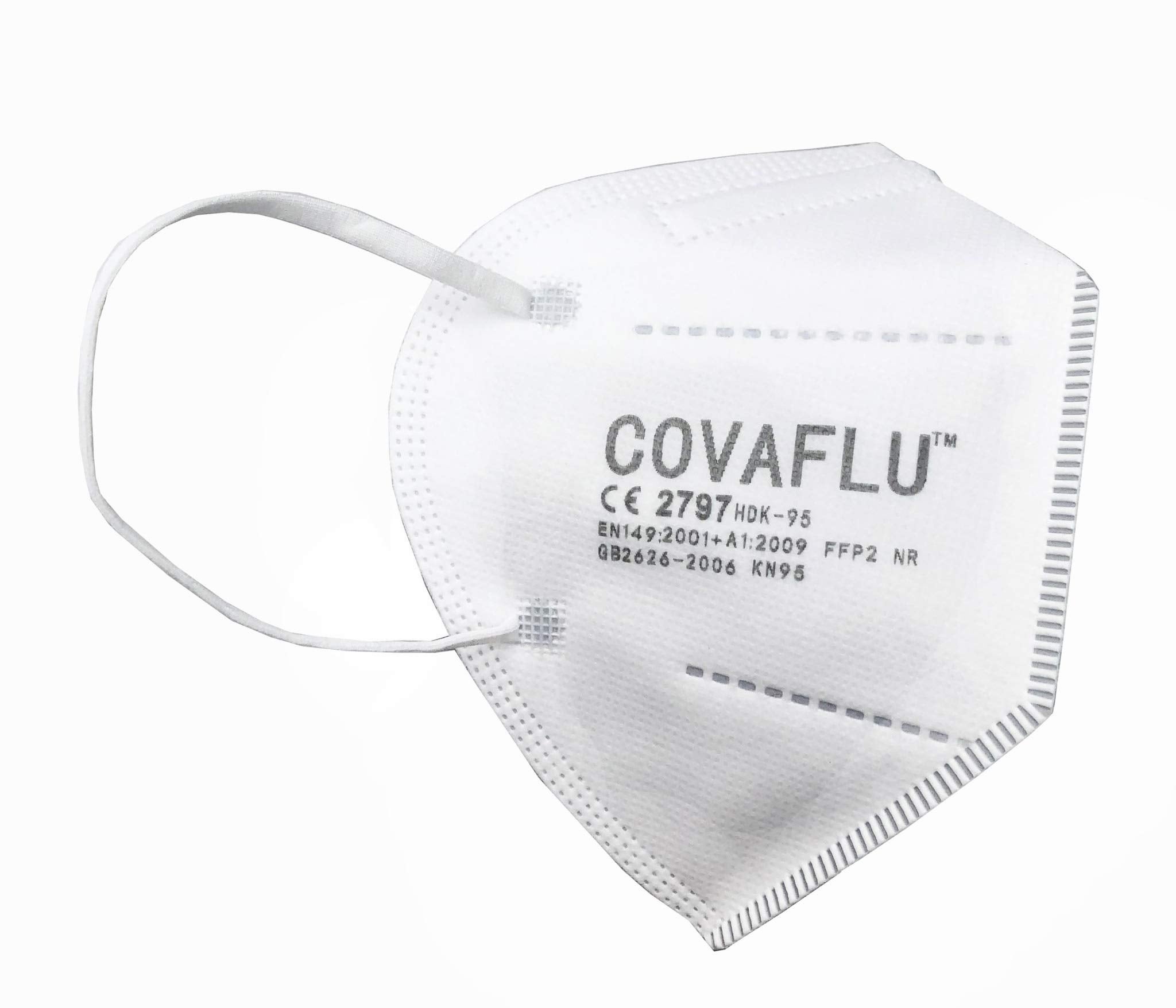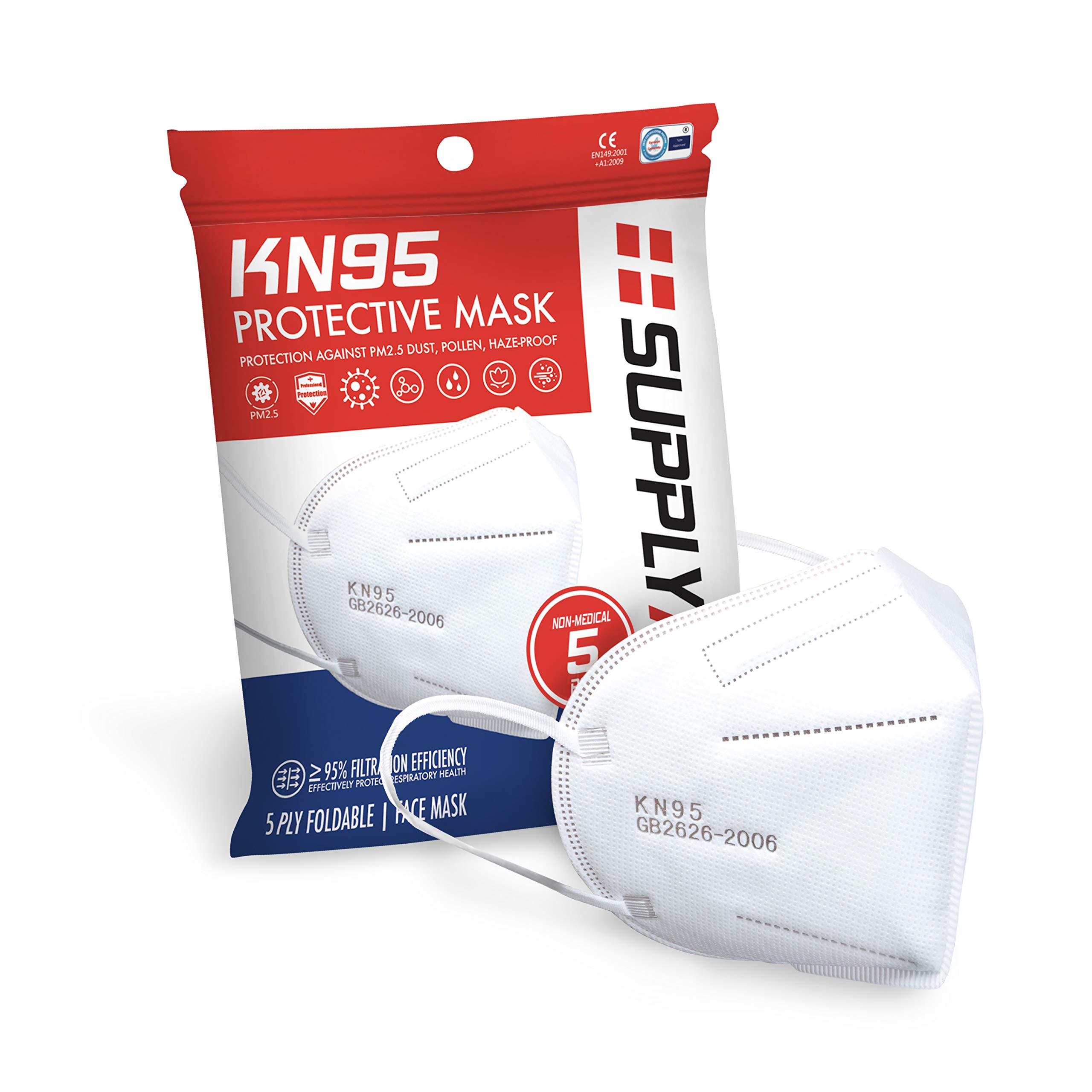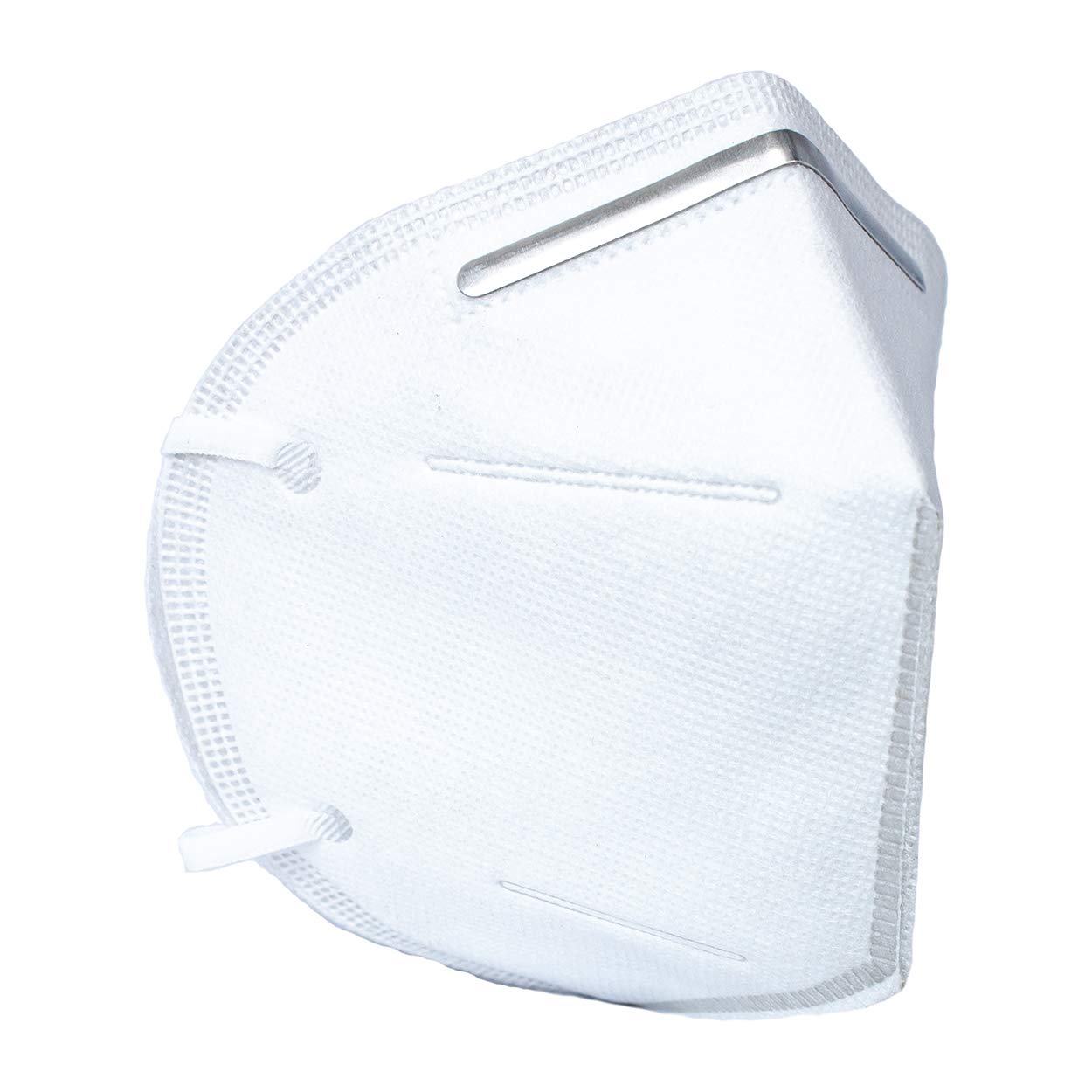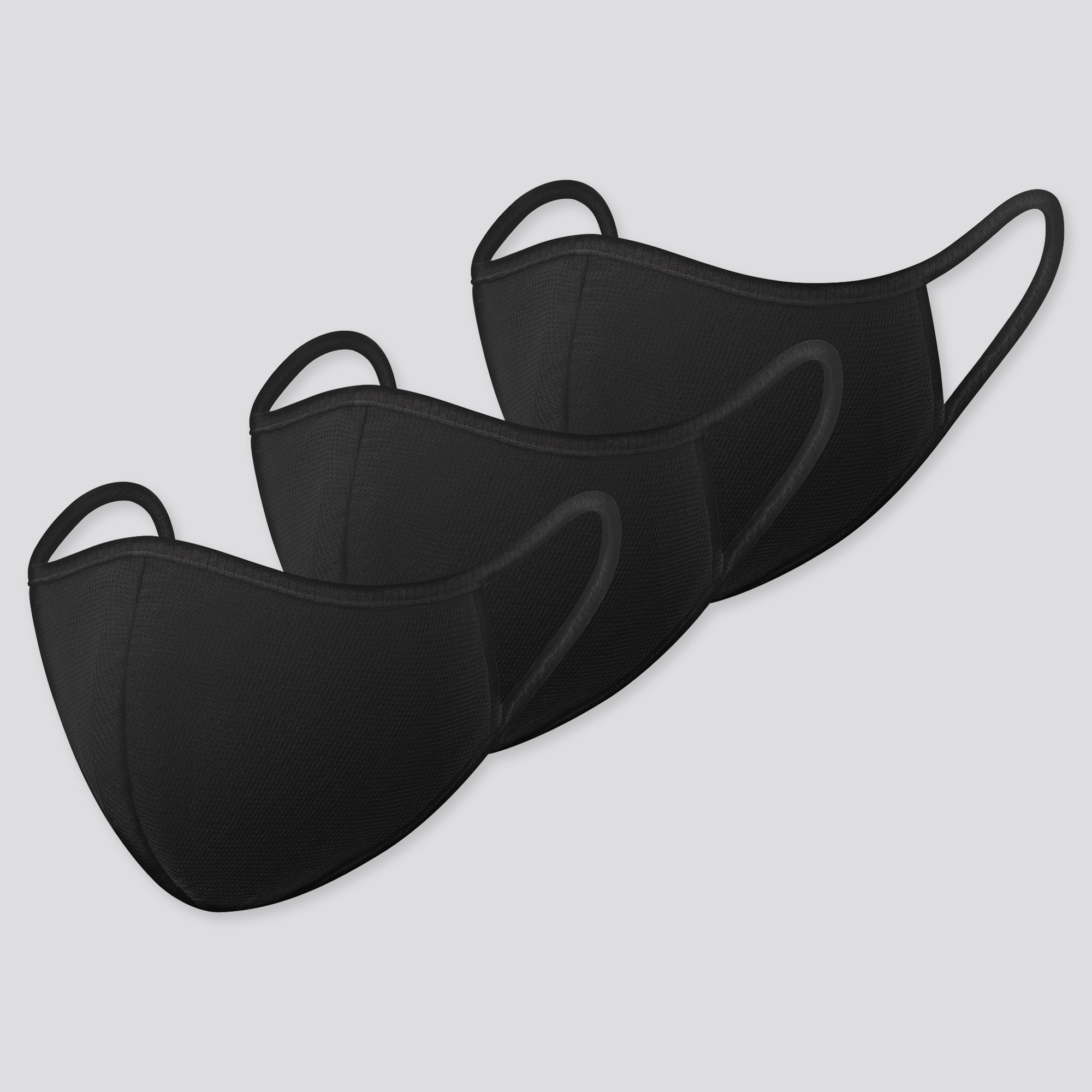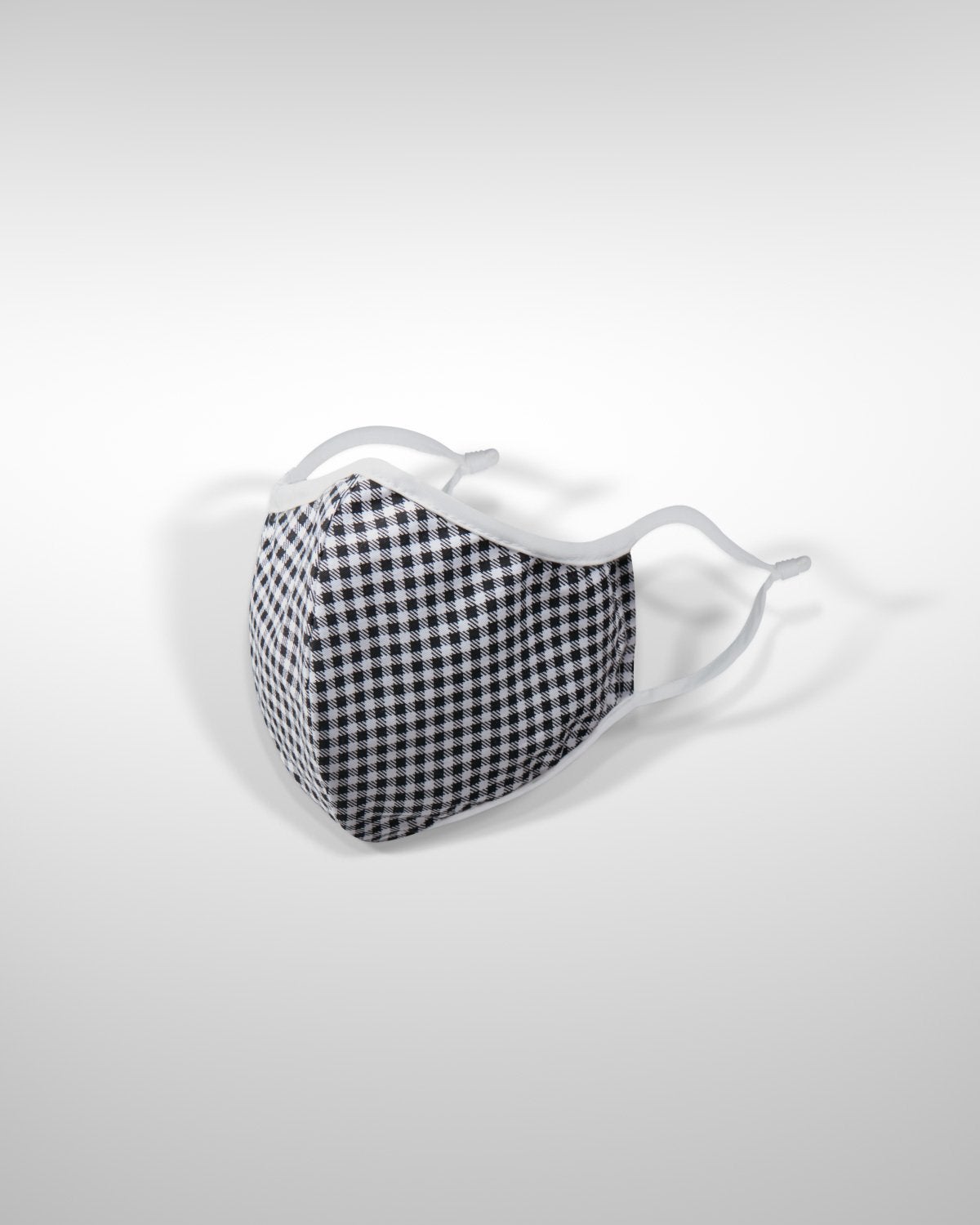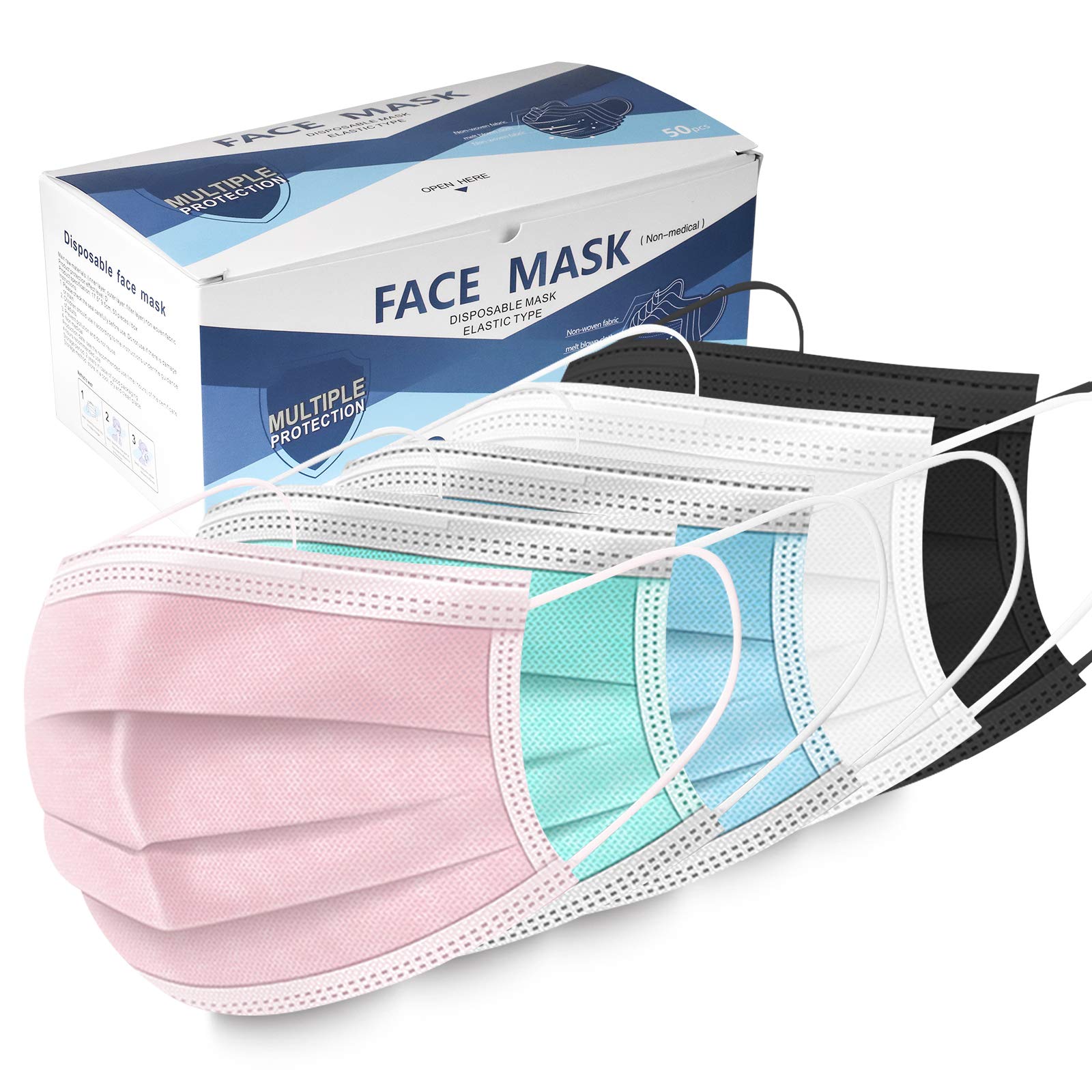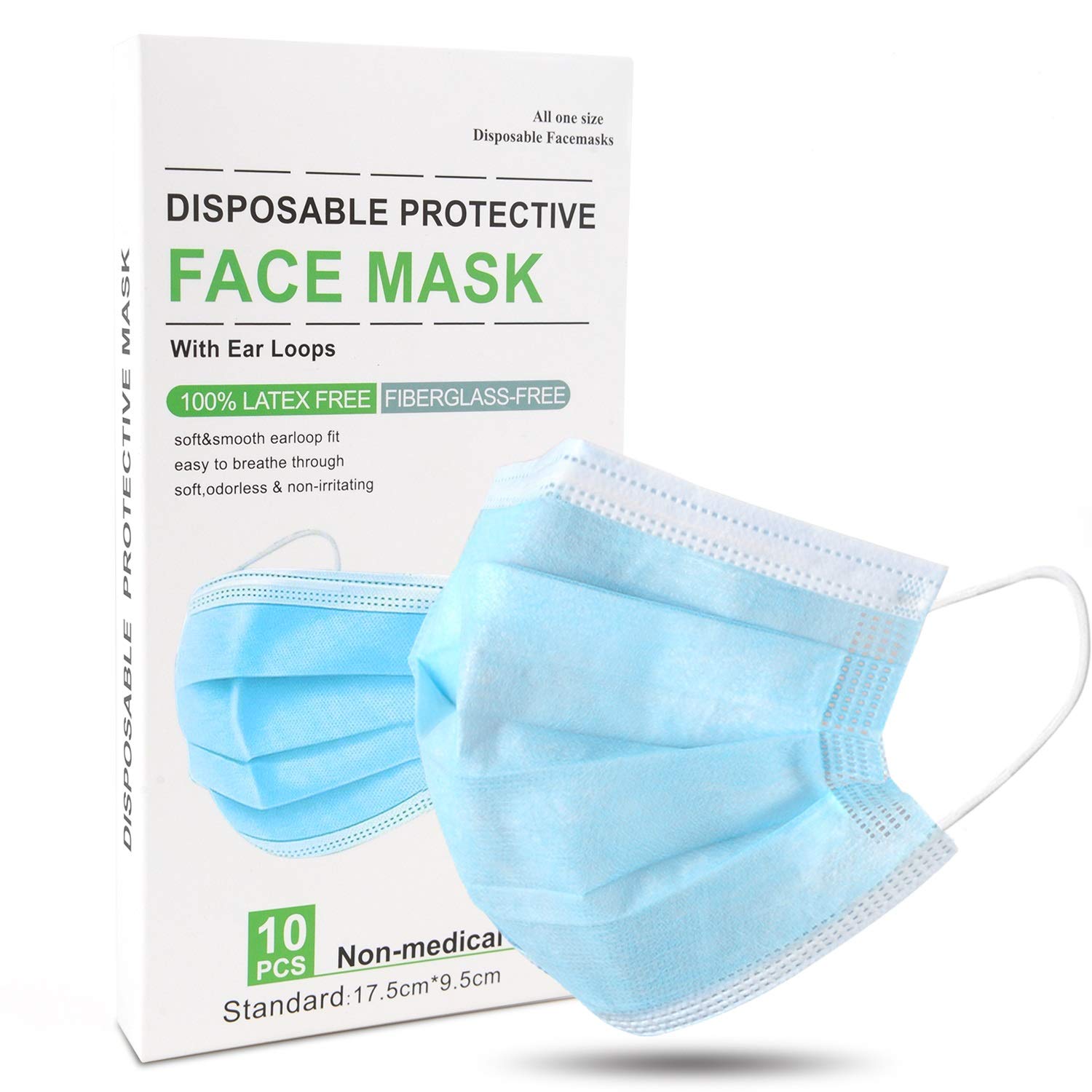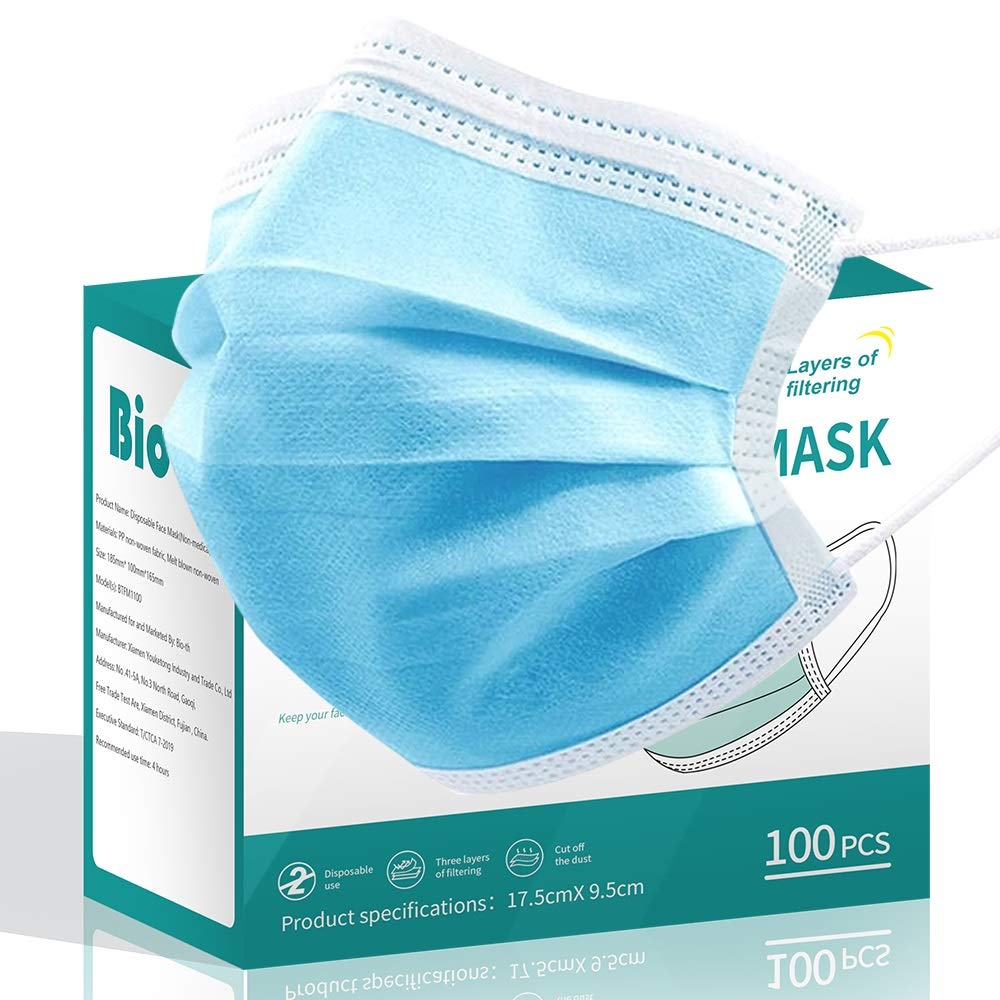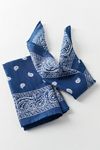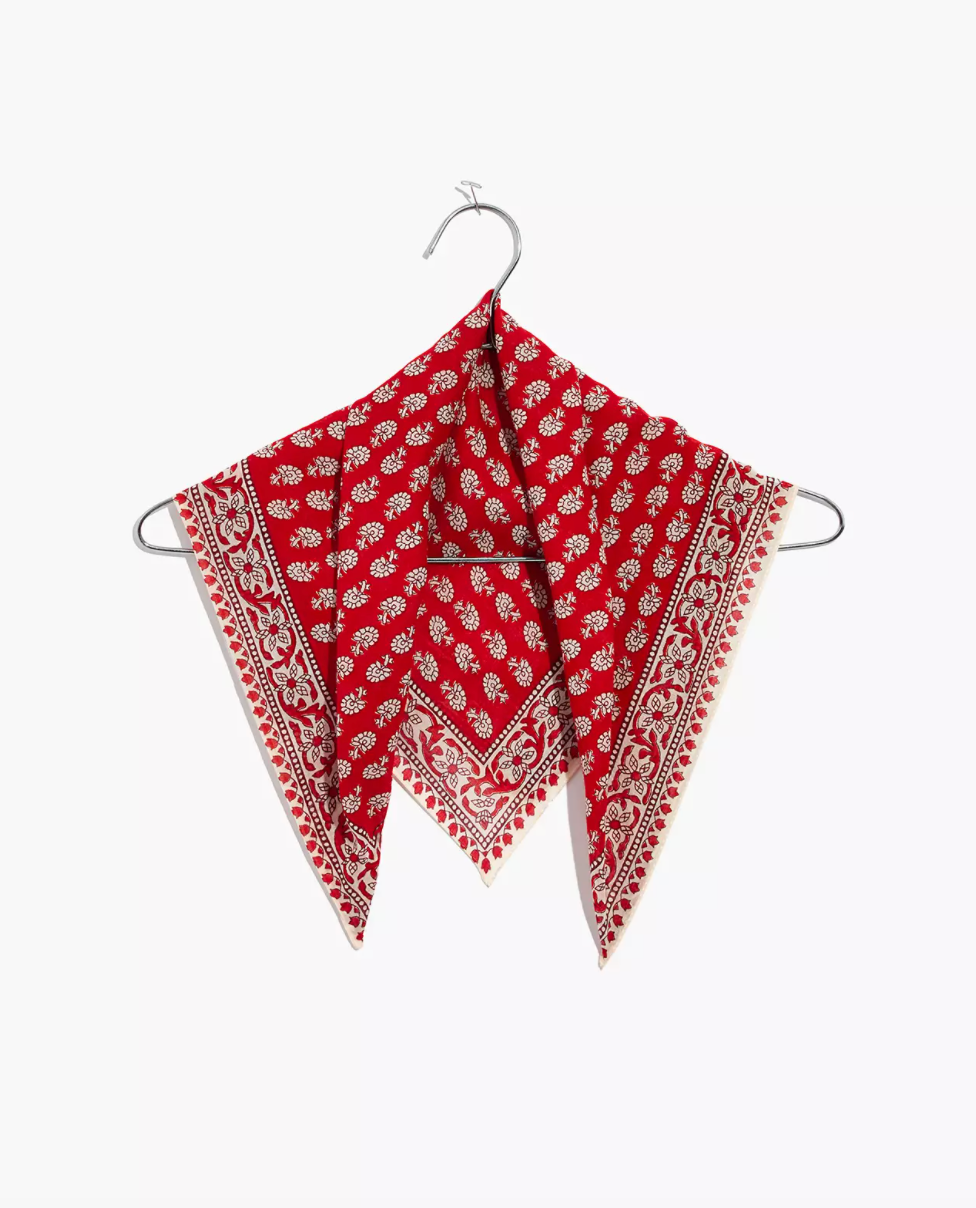The Most Effective Face Masks For Yourself (& Those Around You)
Update, February 8, 2021: In response to countries' reaction to the rapidly spreading COVID-19 variants, some experts are now encouraging double-masking to offer extra protection against more easily transmissible types of the coronavirus.
Update, November 12, 2020: As of Tuesday, November 10, the CDC updated its COVID-19-related health-and-safety guidelines to reflect that studies are now showing the use of non-medical face masks can protect the wearer in addition to those around them. According to studies, the CDC claims that "cloth mask materials can also reduce wearers’ exposure to infectious droplets through filtration, including filtration of fine droplets and particles less than 10 microns." However, it's important to remember that not all face masks are created equal and wearers should choose materials and styles that are most effective for filtration: "Multiple layers of cloth with higher thread counts have demonstrated superior performance compared to single layers of cloth with lower thread counts."
AdvertisementADVERTISEMENT
This story was originally published on September 22, 2020
By now, you've hopefully incorporated face masks as a standard part of your everyday routine (if not, then allow me to kindly point you towards this two-minute Paul Rudd PSA). With new studies and at-times misleading CDC guidelines constantly hitting our news feeds, it can be tricky to keep up with the most reliable information on how best to stay safe and healthy. But if there's one top constant we can keep in mind, it's that not all face coverings are created equal — and we consulted a medical expert to breakdown the ABCs of what exactly constitutes an effective face mask for the COVID-19 era.
What makes a face mask more effective?
There are two primary factors to keep in mind when shopping: "One, the mask has to be fitted around the face, chin, and nose with minimal gaps," Dr. Anthony Harris, MD, medical director and leader of the COVID-19 clinical response team at WorkCare tells Refinery29. "Second, it has to be multi-layered. It shouldn't just be one single layer of cloth — unless that layer is dramatically thick, which is usually not the case." A good rule of thumb: if you can see through the material when you stretch it out, it may not be your best pick. "If you get those two things, you're going to be keeping a lot more people safe," Harris adds. Below, we rank a selection of the most popular and, more importantly, effective face coverings out there (along with the ones to avoid).
AdvertisementADVERTISEMENT
What face masks are most effective?
Silk
The CDC further explains that certain materials, like polypropylene, "may enhance filtering effectiveness by generating triboelectric charge (a form of static electricity) that enhances capture of charged particles," while face masks made of silk, "may help repel moist droplets and reduce fabric wetting and thus maintain breathability and comfort."
N95/K95
Many months later, there's still a shortage of N95 masks among essential healthcare workers. However, for non-medical purposes, the similarly designed (and widely available) KN95 masks are among the safest ones you can order. "Data has shown that they are very similar [to N95 masks] in terms of protection," Harris says. Also, unlike bandanas and some cloth masks, N95s and KN95s are also highly effective in part because they are designed to have complete contact on the wearer's face during wear. (More on this later.)
Cloth
As you probably know, having multiple layers is key to ensuring that droplets don't get in (or out) of your mask. For that reason, multi-layer (at least three, according to experts), reusable cloth masks are good to keep in rotation. Ones to avoid? "Anything with a valve, which. allows open air to pass through without a barrier," Harris advises.
However, in addition to layers, experts will also remind you that fit is everything. "Masks only work if they're being worn properly and fitted properly," Harris explains. A better fit ensures that you'll not only be comfortable, but you won't have any gaping issues, either. (Lastly, don't forget to ensure that it's covering your nose and mouth — it's not a chin cover.)
AdvertisementADVERTISEMENT
Surgical
We generally try to shy away from single-use items that quickly fill up space in the trash can, but if standard surgical masks are all you have access to, rest assured they are highly effective in protecting yourself when you're out and about. "The basic construct of a surgical mask is typically three layers," Harris explains. "And the polypropylene middle layer is effective in minimizing droplet spread." It goes without saying, but if you notice a hole or tear in the mask, discard it and wear a new one (but not before clipping the ear loops first!)
Bandana
"With bandanas, most people aren't wearing it properly," Harris says. However, because they are conventionally made of thicker fabric, they are better than going sans mask. "Don't wear the bandana tied over the bridge of the nose, with the rest of it hanging loose," Harris says. "Make sure your cloth face covering is fitted under the chin, as well as over the nose, so that you're not leaving a significant void and gap and opportunity to spread droplets." (Click here for a quick tutorial on how you can fold a bandana into a well-fitting face mask.)
What face masks should I avoid?
Neck Gaiters
They may have become hugely popular within the running community, but neck gaiters may actually be doing more harm than good, according to a recent study. "Neck gaiters have been shown to increase potentially the hazard and exposure because of the particle size that they produce," Harris explains. "They can actually make the droplets smaller and can potentially aerosolize more readily."
AdvertisementADVERTISEMENT
Clear Plastic Face Shields
Another one to pass on? Clear plastic face shields — unless doubled with a face mask. "Shields are not going to do anything for you in terms of decreasing significant droplets," Harris says. "They're only appropriate when used in conjunction with a face mask or face covering."
COVID-19 has been declared a global pandemic. Go to the CDC website for the latest information on symptoms, prevention, and other resources.
At Refinery29, we’re here to help you navigate this overwhelming world of stuff. All of our market picks are independently selected and curated by the editorial team. If you buy something we link to on our site, Refinery29 may earn commission.
AdvertisementADVERTISEMENT







